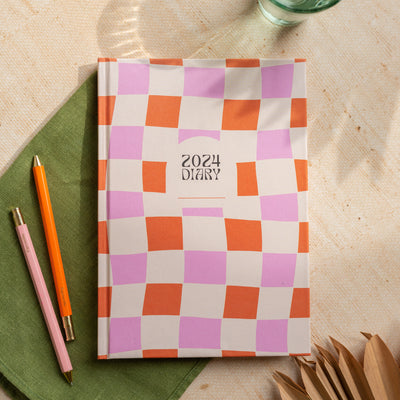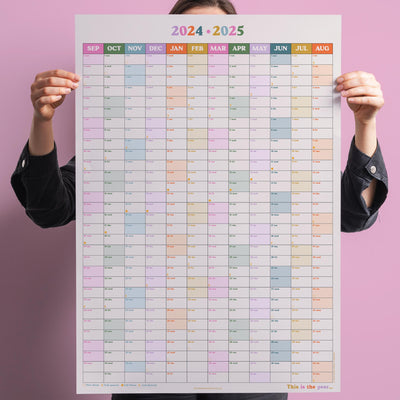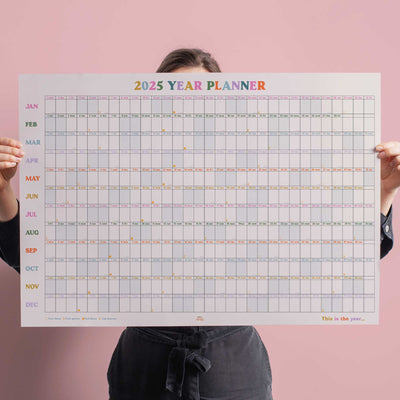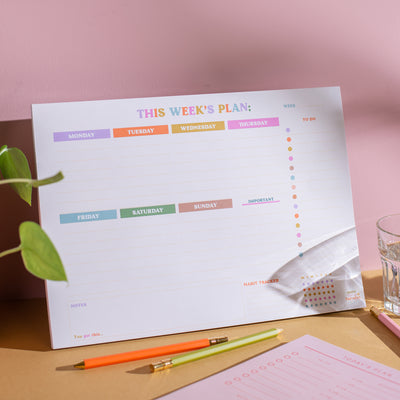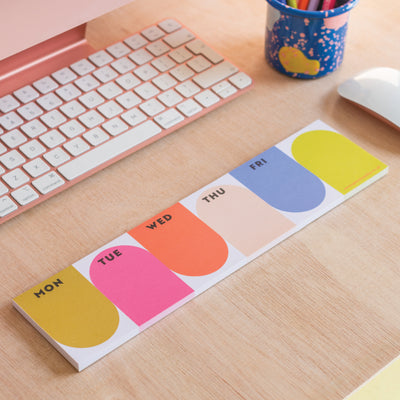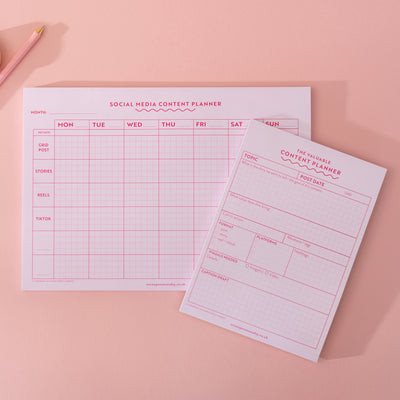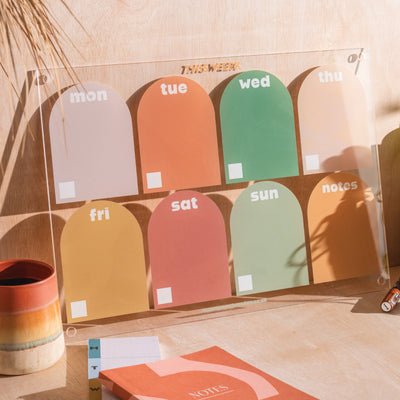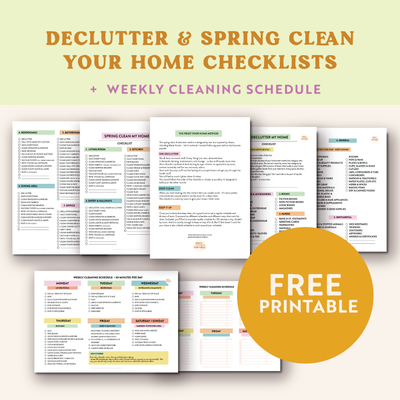Green Claims and how we talk about Sustainability

We probably don’t shout enough about the efforts we make towards considering the impact our business has.
It’s something we discuss daily - it’s embedded in our company ethos. In fact, we are working towards becoming a B Corp, which will keep us in check in terms of making sustainable and ethical choices as a brand.
We see lots of brands making big old claims about ‘saving the planet’;
‘Eco friendly stationery’ ‘Sustainable paper goods’, ‘Buy this pen and save the planet (and solve world hunger while you’re at it)’ - it’s wild out there in the jungle of Green Claims.
We thought we’d share a little of our thinking around it all. Let’s start with the big picture - Green Claims.
What are green claims?
Green claims, also known as ‘environmental claims’ or ‘eco-friendly claims’, are those statements, used by brands that tell you about how a product or service benefits or is less harmful to the environment.
Many people might not realise that what you can and can’t say about your product or service is governed by the Green Claims Code. When you make claims that are misleading, vague or just plain false, it is known as greenwashing.
The Green Claims Code states that:
Green claims MUST:
- Be truthful and accurate: Businesses must live up to the claims they make about their products, services, brands and activities
- Be clear and unambiguous: The meaning that a consumer is likely to take from a product’s messaging and the credentials of that product should match
- Not omit or hide important information: Claims must not prevent someone from making an informed choice because of the information they leave out
- Only make fair and meaningful comparisons: Any products compared should meet the same needs or be intended for the same purpose
- Consider the full life cycle of the product: When making claims, businesses must consider the total impact of a product or service. Claims can be misleading where they don’t reflect the overall impact or where they focus on one aspect of it but not another
- Be substantiated: Businesses should be able to back up their claims with robust, credible and up to date evidence
Is there even such a thing as a sustainable product?
Environmental impact is one of the key factors we consider when designing products and making decisions around packaging, delivery and our studio, as well as in our own lives.
But - we will never claim that our products are sustainable. As far as we’re concerned, there isn’t really such a thing as a sustainable product. The most sustainable product is the one you don’t buy.
We make paper goods, and as far as materials go, paper (especially recycled paper, which is what we use) is one of the lowest impact and most widely recycled materials around. Still, it does have a footprint.
We're very aware of that and we always want to make sure that the products we produce add value to the world and take as little away from it as possible. And we don’t want to mislead anyone by making claims that are untruthful or ambiguous. If somebody tells you that buying their product is good for the environment or will help save the planet - be a little suspicious.
The YES list
- Our products are almost fully recyclable and some, reusable
- We only ever use recycled paper
- All our packaging is plastic free and minimal (while still putting a smile on your face)
- As a business we work towards the triple bottom line - apart from making a profit we also consider our effect on people and planet
- We operate from an energy efficient building (BREAAM certified)
- We are an environmentally conscious company
- We use and support local suppliers wherever possible
- While it is absolutely not a silver bullet, we do invest in carbon offsetting for the majority of our deliveries as it’s an area of impact we have less control of being able to reduce.
The NO list
We will never claim that our products:
- Help save the planet
- Are carbon neutral
- Are green
Yes ok, maybe sometimes
However, it’s not always quite as binary as that. There are nuances with words and expressions depending on how you use them. While we don’t claim that our products are sustainable or eco friendly, we always try to work in an eco friendly manner and find the most sustainable solutions for materials and processes.
And I would definitely say that we have a green ethos guiding our decisions. It is in these situations that the Green Claims Code can be particularly useful as a tool to guard against greenwashing.
The essential questions we ask ourselves:
- Is it true?
- Is it clear or confusing?
- Have we got facts and evidence to back it up?
There's a handy quiz here to help check your claims and copy against the Green Claims Code.
The bottom line
Most important of all - we do not claim to be doing it perfectly. We’re probably going to mess up somewhere, learn from it, and make changes. Reducing our impact on the environment is an ongoing process, not something we expect to finish and file under ’Done and dusted ✔️’.
Always keep learning - here are some links to dig deeper if you fancy it:
- Read the Green Claims Code here.
- Ace & Tate shared some fuck ups around sustainability for their brand here, and are transparent about it (yes!).
If you have any thoughts or suggestions, we’d love to hear them, drop an email to studio@onceuponatuesday.co.uk or send us a DM on Instagram @onceuponatuesday_

